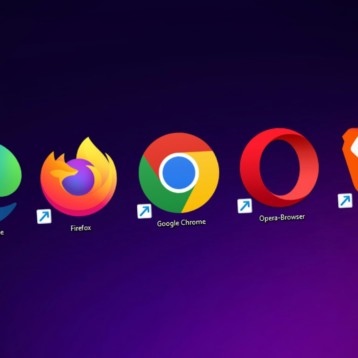
The rise of the COVID-19 virus in early 2020 has put the world on hold. Businesses across the globe are shutting down, going remote, or struggling to get by. People everywhere are isolated to their homes, where the only means of social interaction comes from web-based services like texting, messaging, video calls, and more.
This virus has brought about a humbling realization: our society is infinitely more fragile than we realize. Where a tiny, microscopic virus can bring us all to our knees and cripple our very infrastructures, it’s safe to say we could benefit from some preparedness measures.
Besides affecting the basics of social interactions and infrastructure, COVID-19 has had an interesting effect on the internet as well. With so many people stuck at home, everyone is online. What does this mean for the world wide web? Can ISPs keep up with the demand?
COVID-19 and Social Isolation
What is one to do when they’re stuck at home, separated from the people they love? From work? Many businesses have sent employees home and effectively set up remote systems to allow people to continue working. Video calling services keep friends and family in touch without the physical touch. What do all these things have in common? They’ve created an ever-increasing demand on our digital resources.
Video services and other digital services can use a lot of data, putting further strain on the connection itself. If you’ve got millions of people using the same service at once, it’s only a matter of time before something gives. Servers aren’t designed to host that many people at once, and didn’t have to before COVID-19. ISPs are struggling to meet the demands of a world gone almost entirely digital.
Luckily, there are plenty of ISPs and even internet advisor services that can help you choose the right ISP based on customer service, geography, pricing, and more.
The internet is no longer a luxury, but a utility in our modern world. A basic internet connection can be found just about anywhere on the globe. It keeps us connected to each other, informed, and even helps provide people with necessary products during social isolation.
The Problem With Our Current Internet Infrastructure
The problem that most websites have currently is that their servers simply aren’t built to handle so many visitors at once. Sites like Facebook and Amazon are used to such a large number of users (especially when Facebook has nearly three billion active users).
But wait, weren’t there billions of people using the internet before COVID-19? Of course! Businesses and households all over the globe were accessing the internet on a daily basis before COVID-19, but not that everyone is at home, services that use a lot of data are being used more and more.
Moving a business to remote operations means that more people are accessing their home internet connection for longer periods of time to perform more demanding tasks. If you’ve got 2/3 of the population at home using the internet for demanding tasks, you’re going to run into some connectivity and speed issues.
Security Measures
The web is by no means a completely safe place. Recent cyber attacks have targeted credit card companies, retail stores, and even government websites in order to secure the personal information of thousands if not millions of people. We’re no stranger to cyberattacks, but has COVID-19’s isolation made the internet even more risky?
Most websites have built-in security measures and take great care to secure their site against hackers. However, with so many people online at once, and a greater strain on the infrastructure itself, there’s certainly a possibility of security breaches.
Not to mention, having millions online at once simply creates a larger pool of potential victims for hackers to choose from. Use common sense when you’re browsing at home. Anything suspicious (such as emails) should be avoided. Email scams are a classic approach by hackers, and believe it or not, they’re actually quite effective.
Can The Web Handle So Many People?
The glaring question about our internet connection still remains: can the web handle so many people online at once? The short answer is yes. ISPs are working hard to ensure that everyone remains connected during our time in social isolation. After all, we might all go a bit crazy if we lost our connection to the world and couldn’t leave the house!
You likely won’t have to worry too much about your connection getting shut off or overwhelmed.
We’ve seen reports of internet connections slowing down or cutting in and out, but this is to be expected when new demand occurs; especially in the volume it’s currently happening. Be patient, understanding, and know that your ISPs are working to keep the entire world connected while trying to stay safe from the virus.







![10 Top Game Sites Not Blocked By School [2024 Updated]](https://thefutureofthings.com/wp-content/uploads/2024/10/image-25-358x358.png)


